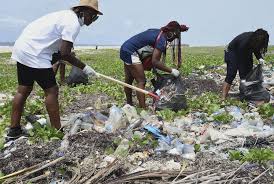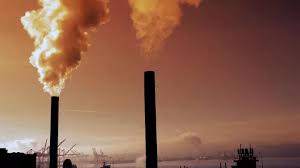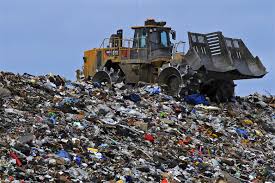Pollution refers to the harmful substances or contaminants into the natural environment, such as air, water, or soil, which can cause adverse effects on living organisms, ecosystems, and the overall quality of the environment.
This contamination can be in the form of chemicals, pollutants, or waste materials, and it often results from human activities, such as industrial processes, transportation, agriculture, and improper disposal of waste. Pollution poses significant threats to both human health and the planet’s ecological balance.
Pollution is a serious problem that affects our planet and all living beings. It happens when harmful substances get into the air, water, or soil, and it can cause many problems for us and the environment. In this article, we will explore what pollution is, what causes it, its effects, and what we can do to reduce it.
What is Pollution?
Pollution is like a cloud of bad stuff that can harm the air, water, and land around us. This “bad stuff” can be chemicals, trash, smoke, or anything that doesn’t belong in the environment. Most of the time, pollution is caused by human activities, like factories, cars, and farms.
Causes of Pollution
1. Air Pollution: This happens when factories, cars, and trucks release gasses and particles into the air. Breathing in this dirty air can make people sick and harm animals and plants.
2. Water Pollution: When chemicals, garbage, or sewage end up in rivers, lakes, or oceans, it’s called water pollution. It can make water unsafe for drinking and hurt aquatic life.
3. Land Pollution: Dumping trash, using harmful chemicals in farming, or leaving hazardous waste in the ground can lead to land pollution. This can harm the soil, making it hard to grow healthy plants.
Effects of Pollution
1. Health Problems: Breathing polluted air can cause respiratory diseases like asthma. Dirty water can make people sick if they drink or swim in it.
2. Harm to Wildlife: Pollution can harm animals and plants. Fish can die in polluted water, and animals can get sick or lose their homes.
Climate Change: Some types of pollution, like greenhouse gasses, can make the Earth’s temperature rise, causing climate change and more extreme weather.
Solutions to Pollution
1. Reduce, Reuse, Recycle: Use less stuff and recycle what you can. This reduces the trash that ends up in landfills.
2. Clean Energy: Switch to cleaner forms of energy, like solar and wind power, to reduce air pollution from burning fossil fuels.
3. Green Transportation: Use public transport, carpool, or ride a bike to reduce air pollution from cars.
4. Protect Water Sources: Properly dispose of chemicals and waste to prevent water pollution, and support clean water initiatives.
5. Plant Trees: Trees help clean the air by absorbing pollutants. Planting more trees can improve air quality.
Pollution is a big problem, but by understanding its causes and effects, and by taking simple steps to reduce it in our daily lives, we can make a positive difference. Each of us has a role to play in protecting our environment and ensuring a cleaner, healthier future for ourselves and generations to come.
Read Also: How to Properly Dispose your Torn or Spoilt Plastic Waste Baskets
Types of Pollution and Thier Causes

Pollution is a multifaceted environmental issue that comes in various forms, each with its own set of consequences. These different types of pollution affect the air we breathe, the water we drink, and the land we live on. Lets explore the primary types of pollution that have significant impacts on our planet and our health.
1. Air Pollution: Air pollution occurs when harmful substances, such as gases, particulate matter, and chemicals, are released into the atmosphere.
Causes: It’s caused by emissions from vehicles, industrial processes, burning fossil fuels, and natural sources like wildfires and volcanic eruptions.
Effects: Breathing polluted air can lead to respiratory problems, cardiovascular diseases, and even premature death. It also contributes to climate change.
2. Water Pollution: Water pollution happens when contaminants enter water bodies like rivers, lakes, and oceans, making the water unsafe for humans and wildlife.
Causes: Industrial discharges, agricultural runoff, sewage, and improper disposal of waste are major contributors to water pollution.
Effects: Contaminated water can lead to health issues when consumed or used for bathing. It also harms aquatic ecosystems, killing fish and other organisms.
3. Soil Pollution: Soil pollution occurs when pollutants, including chemicals, heavy metals, and hazardous waste, contaminate the soil.
Causes: Pesticides, industrial waste, improper disposal of toxins, and landfills contribute to soil pollution.
Effects: Polluted soil can harm plant growth, making it difficult to grow food. It can also leach toxins into groundwater, further exacerbating water pollution.
4. Noise Pollution: Noise pollution is the excessive, unwanted, or harmful sound in the environment, often caused by transportation, industrial activities, and urban development.
Causes: Traffic, construction, industrial machinery, and even recreational activities can generate noise pollution.
5. Light Pollution: Light pollution occurs when artificial light from urban areas interferes with the natural darkness of the night sky.
Causes: Excessive or misdirected outdoor lighting, especially in cities, contributes to light pollution.
Effects: It disrupts natural nocturnal ecosystems, affects human circadian rhythms, and hinders astronomical observations.
6. Thermal Pollution: Thermal pollution refers to the excessive release of heated water into natural water bodies, often from industrial processes or power plants.
Causes: Cooling water used in industries and power plants can be significantly warmer when discharged, impacting aquatic life.
Effects: Higher water temperatures can harm aquatic ecosystems, reducing oxygen levels and affecting fish and other organisms.
Understanding the various types of pollution is crucial for addressing environmental challenges. Pollution affects not only our well-being but also the delicate balance of ecosystems. Efforts to reduce pollution, whether through legislation, technological innovations, or individual actions, play a vital role in preserving the planet for future generations.
Pollution is a pressing problem that affects our planet and its inhabitants. It arises when harmful substances and contaminants find their way into our environment, causing harm to the air we breathe, the water we drink, and the land we live on. Pollution has far-reaching consequences, and its effects touch every aspect of our lives.
Read Also: A Comprehensive Guide To Circular Economy Consulting
Methods of Addressing Pollution

Addressing pollution requires a collective effort at local, national, and global levels. Some crucial steps include:
1. Regulations: Governments can implement and enforce strict regulations to limit pollution from industries and transportation.
2. Technology: Advancements in technology can help reduce emissions and pollution from various sources.
3. Sustainable Practices: Adopting sustainable farming methods and responsible waste management practices can help curb pollution.
4. Individual Responsibility: Each person can contribute by reducing personal waste, conserving resources, and supporting eco-friendly products and practices.
Pollution poses a significant threat to our environment, health, and the future of our planet. Recognizing its various forms and taking proactive measures to reduce and prevent pollution is crucial for a cleaner, healthier world for current and future generations.
Read Also: The Different Crop Storage Methods

